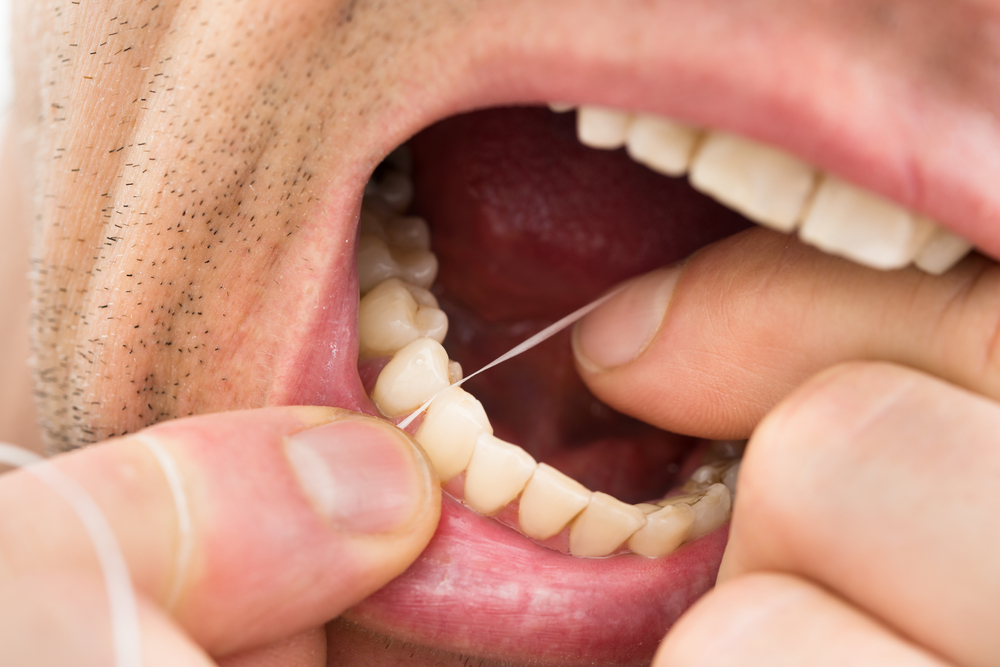Comprehensive Guide to Natural Home Remedies for Severe Tooth Pain Relief
This comprehensive guide explores 11 natural and effective home remedies to alleviate severe tooth pain. From clove oil and ginger-cayenne paste to saltwater rinses and acupressure, learn how to reduce discomfort naturally while knowing when to seek professional dental care. These methods offer quick relief and support oral health, especially during emergencies or delaying dental visits.

Discover 11 Effective Natural Home Treatments to Alleviate Intense Toothache Symptoms
Toothache can be a debilitating experience, often caused by various dental problems such as cavities, gum infections, sinus issues, or even jaw joint disorders. These types of dental pain are characterized by symptoms like enamel erosion, inflammation of the pulp, grinding habits, periodontal disease, and temporomandibular joint (TMJ) problems. Addressing these symptoms promptly is crucial because, unlike minor discomforts, severe tooth pain can interfere with daily activities and overall well-being. Although seeking professional dental care remains the most effective solution, many individuals look for immediate relief options, especially those who might delay visiting the dentist due to fear of pain, busy schedules, or limited access. Fortunately, several natural home remedies have been proven effective in providing quick relief and can serve as supplementary measures until professional treatment can be obtained.
Understanding the causes of severe tooth pain can help you choose the most appropriate natural remedies and know when to seek urgent dental care. Below, we explore 11 proven home treatments that can soothe intense toothache symptoms, possibly delaying the progression of dental issues and providing comfort during painful episodes.
1. Clove Oil: Nature’s Analgesic and Antiseptic
Clove oil is renowned for its powerful analgesic and antiseptic properties, making it a popular choice for temporary relief from tooth pain. The active compound, eugenol, effectively numbs nerve endings, alleviating pain. To use, dab a small amount of pure clove oil onto a cotton ball and gently apply it to the affected tooth or gum area. Be cautious not to swallow the oil and avoid excessive application, as high concentrations might cause irritation. Clove oil can provide rapid relief, especially during emergency situations, but should be used with care to prevent adverse effects.
2. Ginger and Cayenne Pepper Paste: Anti-inflammatory Powerhouse
A paste made with fresh ginger and cayenne pepper combines anti-inflammatory properties with pain-relieving compounds. Mix finely grated ginger with a pinch of cayenne and a few drops of water to create a paste. Apply this mixture directly to the painful tooth or gum area for quick relief. Ginger contains gingerol, which reduces inflammation, while capsaicin in cayenne acts as a natural painkiller by blocking pain signals. Regular use can help ease severe discomfort, but avoid aggressive application to prevent gum irritation.
3. Saltwater Rinse: Natural Disinfectant and Inflammation Reducer
One of the simplest yet most effective remedies is rinsing the mouth with warm saltwater. Dissolve half a teaspoon of salt into a cup of warm water. Swish the solution around the mouth for 30 seconds to one minute, then spit out. Saltwater helps to reduce bacterial load, decrease inflammation, and promote healing in the gums. Repeating this process several times daily can help manage pain, especially when caused by infected gums or minor abscesses.
4. Peppermint Tea Teabag: Cooling and Numbing Effect
A chilled peppermint tea bag can provide a soothing, numbing sensation that temporarily alleviates tooth pain. Steep a peppermint tea bag in hot water, then let it cool in the refrigerator. Once cold, place the tea bag on the affected area for a few minutes. The natural menthol in peppermint relaxes muscles and numbs nerve endings, offering quick relief. This method is particularly helpful if pain is worsened by inflammation or sensitivity.
5. Hydrogen Peroxide Rinse: Antibacterial and Debridement
A diluted hydrogen peroxide solution can disinfect the mouth and reduce bacteria that contribute to toothache. Mix equal parts of 3% hydrogen peroxide and water, then swish the solution in your mouth for a brief period before spitting out. Rinse with plain water afterward. Hydrogen peroxide helps whiten teeth and reduces bacterial plaque, which can improve symptoms related to gum infections. Note: Do not swallow the rinse, and only use it occasionally to prevent irritation.
6. Ice Pack Application: Immediate Pain Reduction
Applying an ice pack or cold compress to the outside of your cheek directly over the affected area can significantly reduce pain and swelling. Wrap ice cubes in a towel or use a commercial cold pack, then hold it on your cheek for 15-20 minute intervals. The cold constricts blood vessels, numbs nerve endings, and decreases inflammation, providing immediate and effective relief during severe episodes.
7. Myrrh Oil: Natural Healing and Antiseptic
Myrrh has been used for centuries as a natural remedy due to its antiseptic and anti-inflammatory properties. Dilute a few drops of myrrh oil with a carrier oil like coconut or olive oil, then apply it directly or use as a mouth rinse. It can help in reducing bacterial growth, promoting healing of inflamed gums, and relieving pain. Regular application can support oral health and alleviate discomfort caused by infections or injuries.
8. Proper Oral Hygiene Practices
Maintaining good oral hygiene is essential, especially when experiencing tooth pain. Use a soft-bristled toothbrush to gently clean the affected area, avoiding aggressive brushing that can worsen irritation. Floss carefully around the affected tooth to remove trapped food and plaque. Incorporate fluoride toothpaste to strengthen enamel and prevent further decay. Consistent oral care can prevent worsening of symptoms and support healing.
9. Garlic: Natural Antibiotic and Pain Reliever
Garlic contains allicin, a compound with strong antibacterial and anti-inflammatory properties. To use, crush a fresh garlic clove and place it directly on the sore tooth or gum, or chew a small piece gently. Alternatively, garlic extract can be diluted and applied externally. Garlic’s antimicrobial effects can help fight infection and provide pain relief. However, it can cause a burning sensation and should be used sparingly.
10. Vinegar: Disinfectant and Pain Reducer
Apple cider or white vinegar has natural antiseptic qualities. Dilute vinegar with equal parts water and use as a mouth rinse. Swish the solution gently for 30 seconds to 1 minute, then spit out. Vinegar’s acidity can help neutralize bacteria and reduce inflammation, potentially easing pain caused by bacterial infections or decayed teeth. Excessive use may erode enamel, so use sparingly.
11. Acupressure Techniques: Non-invasive Pain Management
Stimulating specific acupressure points can help reduce tooth pain naturally. For instance, applying firm pressure with your thumb or finger to the LI4 point (located between the thumb and index finger) for several minutes can relieve headache and toothache symptoms. Acupressure promotes relaxation and improves blood flow, providing non-invasive relief without medication. Learning basic acupressure techniques can be beneficial during severe pain episodes.
Important Precautions and When to Seek Dental Care
While these natural remedies can provide temporary pain relief, they are not substitutes for professional dental treatment. If your toothache persists beyond a few days, worsens, or is accompanied by swelling, fever, or difficulty swallowing, seek immediate dental care. Severe pain, abscess formation, or trauma requires urgent attention from a dentist to prevent complications and preserve oral health. Always consult a dental professional before relying solely on home remedies, especially if you have underlying health conditions or are pregnant.
In summary, these 11 natural home remedies can be effective for managing severe tooth pain temporarily. Incorporating good oral hygiene practices and seeking prompt dental care are vital for resolving the underlying cause. Use these natural treatments judiciously and prioritize professional advice for long-term oral health and pain management.





